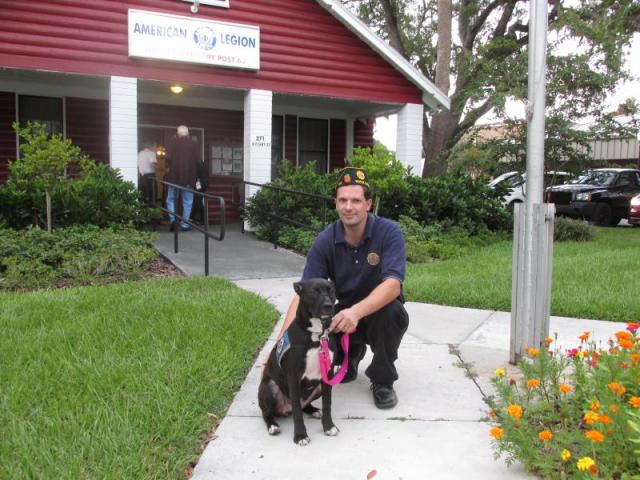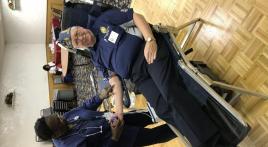By Darryl Owens, Orlando Sentinel Columnist,
Used with permission of the Orlando Sentinel
Just south of 13 years, America has been in what seems a never ending global war on terror.
Much has changed during that time. Motives for invasion. Commanders-in-Chief. Enemies. Even the phrase coined for our response to soulless evil on a September morn-war on terror-has fallen out of favor.
One thing stayed constant: war's wounded.
Between Afghanistan and Iraq, 52,116 U.S.troops were injured. Many struggle with life after loosing limbs to roadside bombs. Others live a mirage of normalcy that-but for modern battlefield medicine-would have killed them a generation ago.
Those numbers exclude the invisibly injured, the nearly 119,000 souls whom military doctors diagnosed with PTSD from 2002 to Jan 10,2014, the Congressional Research Service reported.
These patriots likely will need years of exhaustive medical and mental-health care to adjust to and live out forever altered live out forever-altered lives, and that's a grim reality some Winter Garden Veterans couldn't overlook.
It wasn't that members of the Hugh T. Gregory American Legion Post 63 have been ignoring their brothers and sisters. For years, the post has donated to homebuilding projects for severely wounded vets and to facilities that nurse the Purple Hearted.
However,the post's vets wanted to do more. At an April meeting they kicked around ideas. One stuck. The best way to help comrades cut down by war was...more “boots” on the ground.
Boots, in this case, is a 10-month-old black Labrador/border-collie mix whose name owes to her four snow capped feet. Post 63 is donating monthly hall-rental fees and bingo proceeds to cover the cost of her to serve as an assisitive animal.
It ain't cheap. An 18 month session costs $18,000.
In the end, Post 63 decided the outlay-it's largest in its 93-year history-was well worth it.
“I'm one of the fortunate ones” says Post Commander Judd Kuneman, who marched home after 25 years in the Air Force and Army “just as I was.”
“ But for people who served our country(and were injured) we should do a little something for them.”
The Post's little something reveals a big deficit.
Estimates suggests 13 percent to 20 percent of the 2.6 million-plus-war-on terror troops live with ptsd. That means upward of 520,000 service members might benefit from a service dog,which can be trained to soothe veterans rocked by crowds or other situations, stir them from nightmares and assist in reorienting them after flashbacks.
And that doesn't factor in vets for whom service dogs can improve mobility and daily functioning.
Sadly, the math doesn't add up. Training schools nationally receive some 20,000 request for animals, yet only 3,000 dogs graduate yearly from legitimate programs, says Ken Lyons, a trainer with Service Dogs of Florida Inc. Plus, waiting lists are years long, insurance often doesn't cover service animals, and a sluggish economy has withered donations that nonprofit groups use to pay for acquiring, training and boarding service animals.
So Post 63's investment in Boots is significant. If she measures up. Nine out of 10 dogs wash out.
Hearing, guide, or service dogs must be reliable, even tempered, docile and obedient. Early in training, Lyons says pooch plebes undergo standardized testing to see what “makes a dog tick.”
Halfway through comes temperament training. Trainers test dogs' responses in potentially life or death scenarios. Dogs spend up to six months with families, learning basic commands and experiencing both urban and rural lifestyles.
A dog graduates after acing three criteria. One is obedience and whether it is suited for the work. Another is behaving well in public places. Dogs must pass the torturous “T-Bone test,”
which requires them to ignore for 45 seconds a steak the trainer intentionally drops on a restaurant floor. Lastly, a test on providing assistance that the impaired owner recognizes and assents.
So far so good with Boots, who Lyons likely will serve as a mobility or hearing dog. Upon graduation,his organization, guided by a VA list of needy veterans(the VA doesn't provide veterans with service animals) will find Boots a home. Post 63 has requested she be deployed somewhere in Central Florida.
Commander Kuneman says, “There's no way they'll ever have enough of them(service dogs).”
Sadly, he's right. Still while Post 63's charity won't significantly improve the supply-demand disparity, Boots may at least help one Central Florida hero who needs a helping hand. Or a paw.





